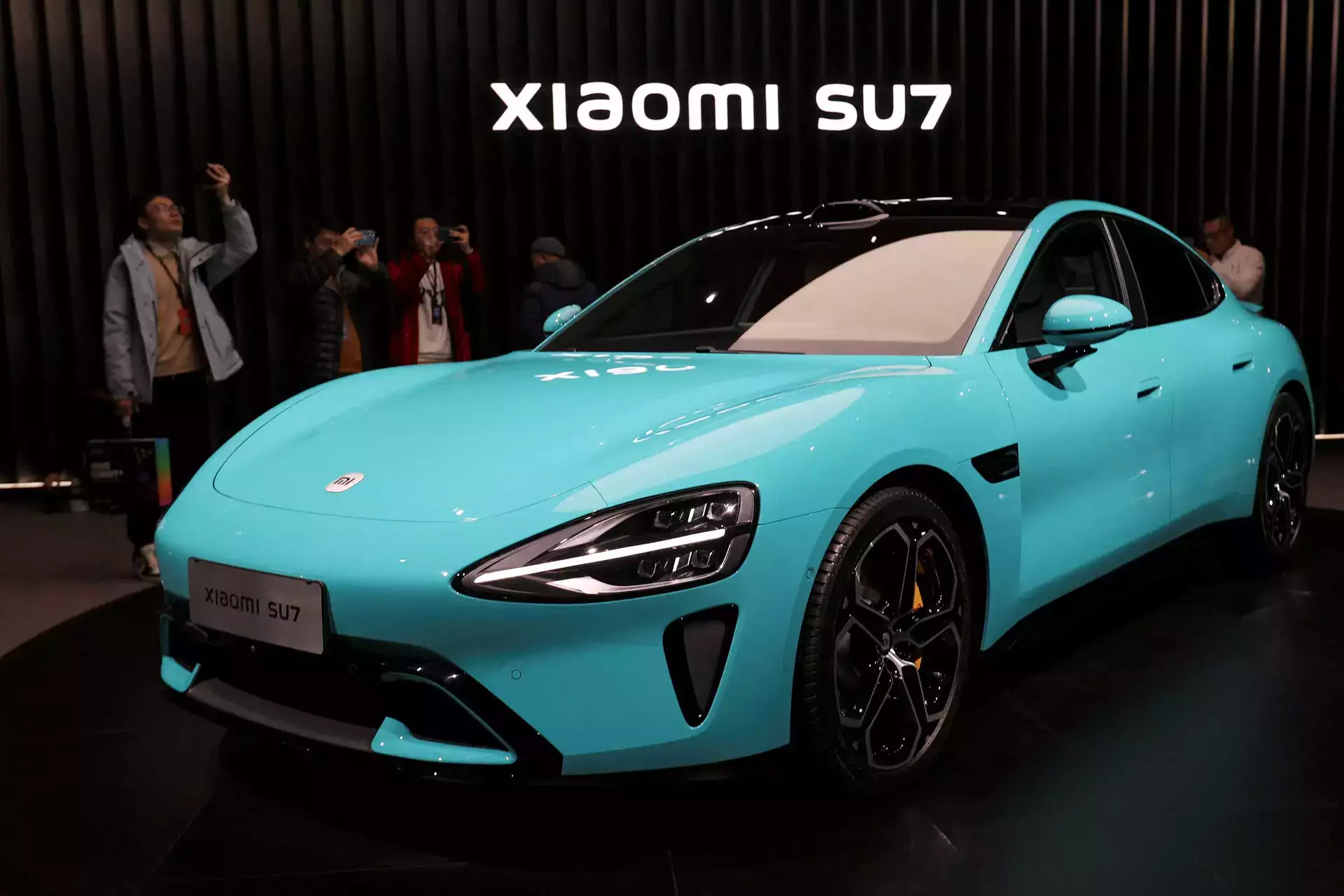
Xiaomi is approaching full initial capacity and is working now to increase output to accommodate demand, people familiar with the matter said. The company benchmarked its envisioned SUV against Tesla’s during development, the people said, asking not to be identified discussing a private project.
An SUV would mark a big expansion of Xiaomi’s USD 10 billion EV endeavor, spearheaded personally by billionaire co-founder Lei Jun. The company is trying to reduce its reliance on a volatile smartphone market dominated globally by Apple Inc., though with EVs it’s getting into a crowded arena and taking on established rivals Tesla and BYD Co.
It’s unclear what specifications and pricing Xiaomi envisions for the SUV — a type of vehicle gaining in popularity across China. The company’s plans for production, first reported by local media outlet Yicai, could also shift depending on how it progresses on capacity, the people added. Representatives for Xiaomi didn’t respond to emails and a phone call seeking comment.
Discussions about an SUV began as far back as when Lei announced in 2021 that EVs represented his final major entrepreneurial effort, one of the people said. But the company eventually decided to move first on the SU7, a USD 30,000-plus sedan with a design aesthetic similar to Tesla’s Model 3 and the Porsche Taycan.
Xiaomi doesn’t anticipate the SUV going into mass production until late 2025 at the earliest, when it completes construction on a second phase of its assembly factory in Beijing, said one of the people. For now, it’s prioritizing production of the SU7 as it only has the capacity to make fewer than 10,000 deliveries a month, the person said.
Xiaomi, which gets more than 60% of its revenue from smartphones, has been trying to diversify in part because of sluggish device demand in its home market.
Yet it joins scores of players vying for a slice of the Chinese EV market — the world’s largest, but one where margins have compressed as Tesla and BYD lead a price war during a period of slowing growth. Apple nixed its own long-incubating EV project after failing to overcome challenges in adapting its technological expertise to a new field of manufacturing.
Xiaomi’s SU7 series received close to 90,000 confirmed orders as of the end of April — about a month after the debut in late March. Xiaomi’s stock has risen some 30% since the SU7’s debut and is now close to its highest level in about two and a half years.
Its EV business could break even in 2026 — two years ahead of a previous estimate — because of improving capacity and a positive market reception for premium models, HSBC Qianhai Securities’ analysts Frank He and Steven Wang wrote in a memo last week.
They expect the company to more than double shipments to 240,000 units in 2025. “The capacity bottleneck will start to ease in the third quarter of 2024,” they wrote.
Disclaimer: The copyright of this article belongs to the original author. Reposting this article is solely for the purpose of information dissemination and does not constitute any investment advice. If there is any infringement, please contact us immediately. We will make corrections or deletions as necessary. Thank you.





